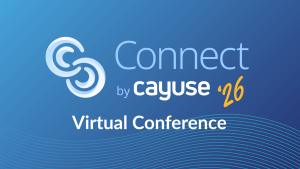Blog
What Do Pre- and Post-award Research Administration Have in Common?
- Healthcare
- Higher Education
- Life Sciences
- Nonprofit
Pre- or post-award research administration? In a previous blog post, we explained the differences between pre- and post-award research administration and what’s unique to each part of the process, so check it out if you haven’t already!
To quickly recap, pre-award is generally considered the beginning stages before you start managing a grant or other award–so looking for funding, preparing and submitting your proposal and budget, and so forth. Once you receive the grant and set up an account to manage the funding, everything after that is considered post-award. For more context, check out this post about why pre- and post-award are separate.
Now onto what pre-award and post-award have in common.
Pre- and post-award: the similarities
While pre- and post-award research administration can differ greatly, both functions are part of research administration. And although research administration looks different at every organization, some things are fairly similar no matter where you go:
Data collection and entry
Whether pre-award or post-award, data collection is critical. You need to collect, track, and monitor the data associated with your research for a number of reasons, such as reporting requirements. Pre-award data collection revolves around the proposal (such as budget), and post-award data collection is more about spending to date, results, and so forth.
Reporting
Reports are valuable for several reasons: to review your success, evaluate your shortcomings, evaluate individual performance or performance of specific organizational units, provide data to others, and so on. Being able to generate clean and accurate reports makes data collection valuable and useful. Not to mention, it makes your colleagues happy!
Internal approvals
Whether pre- or post-award, you have to get internal approvals for the initial proposal submission, compliance items, award acceptance, modifications to the work or award, hiring, and purchasing.
Internal document routing
Routing is necessary for internal approvals as well as process documentation from pre- to post-award. These functions serve as a bridge between research administrators, principal investigator(s), and individual institutional organizational units.
Communication
No matter what aspect of research administration you’re involved in, communication is critical. Intra-office, inter-office, with the investigator or the funding agency–maintaining open and effective lines of communication is key.
Protecting intellectual property
Intellectual property is handled during pre-award negotiations and at post-award for reporting of intellectual property developed, filing patents, and determination of rights.
Compliance
Regulatory or financial, this is an integral part of the entire research administration process. Minimizing risk is one of the main challenges of pre- and post-award RAs, because noncompliance has major consequences for your organization’s reputation, not to mention financially.
Administrative burden
Administrative burden is growing and affects all parts of research administration. At Cayuse, we aim to decrease your administrative burden with our solutions to maximize efficiency and give you back valuable hours in your day.
Solutions to assist with pre- and post-award research administration
While this certainly isn’t an all-encompassing list of similarities between pre- and post-award research administration, it does capture some of the more common similarities. There may be other similarities between pre- and post-award research administration that are unique to your organization!
We offer pre- and post-award solutions that are innovative, easy to use, diverse in report selection, well-supported by an implementation staff with research administration experience, and competitively priced. But don’t take our word for it–read what your colleagues have to say in our customer case studies!
We’d love to help you too. Get in touch and let’s talk about your needs!

